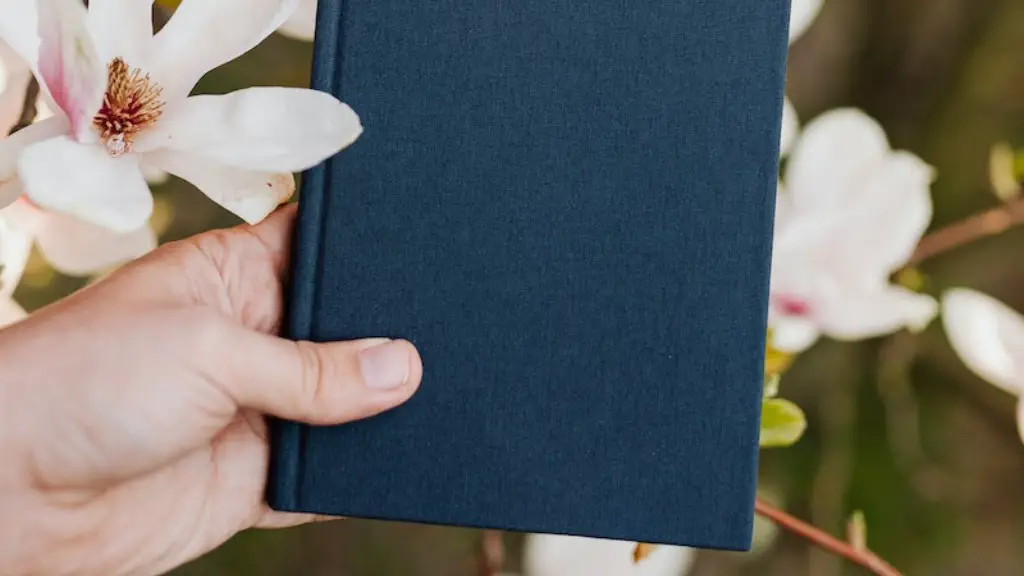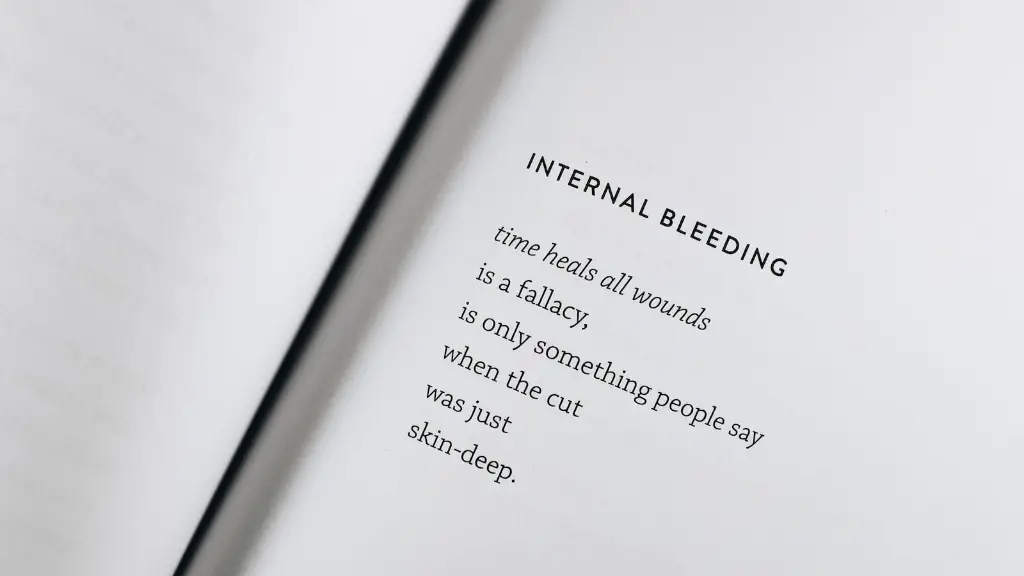How to make your own Poetry
Writing poetry can be a wonderful outlet for creativity and self-expression. It offers a person the chance to express their innermost thoughts and feelings in a way that is often more powerful than regular prose. While writing a poem may seem daunting, with a bit of practice, you can become a confident and skilled poet.
The first thing to remember is that there are many different types of poetry. From traditional forms like haiku, to free verse and narrative poetry, there is an extensive variety to explore. The type of poem you choose to write will depend on your own style and the kind of story you want to tell. Some poems may be more suited to a particular format so it is worth exploring the different types to find one that fits your purpose.
Another key element is meter and rhyme. Poetry with a consistent meter adds a structure and rhythm to the poem and can make the poem feel more cohesive. Rhyme can be used to add a lyrical element to the poem and can be an efficient tool for reinforcing a message or point. Before you start writing, it can be useful to plan out your poem. Make up a framework and decide where specific elements should fit. This will help focus and maintain the flow of the poem.
Using language that speaks on a deeper, metaphorical level can also create a powerful impression. Poetry can be full of images, metaphors and similes which add power and meaning to your poem. This kind of language brings abstract ideas to life and makes them easier for readers to understand. By taking the time to choose and arrange your words wisely, you can create a captivating and unique poem.
When writing a poem, it can be helpful to also draw from personal experiences, from your senses, from other works of art and from conversations with other people. Inspiration for a poem can come from anywhere, so try to stay open to your environment and to what appeals to you. Don’t be afraid to experiment with your writing. Unlike prose, poetry doesn’t have to adhere to specific structures or rules and offers the opportunity to explore and express ideas without limitation.
Taking time to revise your poem is essential for producing a well-crafted work. Use your drafts to refine the poem, enhance the strengths and address any weaknesses. Editing should begin at the individual word level, rewording phrases, refining sounding and adjusting the flow of the poem. The aim is to construct a poem that is meaningful but that is also well written.
Preparing your poem for submission
Once you have created a finished poem, the next step is preparing it for submission. If you’re sending your poem to an editor or a publication, make sure to follow the specific guidelines. Check that your poem is formatted properly, including having the right number of stanzas and lines. Also, double-check for any typos, spelling mistakes or awkward language. This will demonstrate your attention to detail and demonstrate that you are taking your poem seriously.
The key to starting your poem is to explore different types of poetry, understand the conventions and practice. Building up a consistent writing routine, gaining experience and experimenting with ideas can help build the confidence you need to keep writing. Even if your poem isn’t perfect the first time around, don’t be discouraged. Writing good poetry requires patience, dedication and an open-mind.
The editing process
After the initial write-up is finished, it’s time to begin the editing process. Start by reading through it to get a sense of the poem’s overall structure. Are there any lines that don’tide make sense? Do any of the lines seem redundant? It can be beneficial to have another reader to give feedback and offer further insights. Remember to be open to constructive criticism and use it to refine and improve the poem. Having someone else review the poem also helps to reduce any potential bias in the work.
Furthermore, reading other poets’ work can be a great source of guidance and inspiration. Develop an understanding of the kinds of elements that a poem needs; look at how other poems use rhythm, meter, imagery, sounds and structure to create an impactful piece. Using other poems as a point of reference can help guide you in the kind of work you want to produce.
Often, poems don’t feel ready until they’ve gone through several drafts. As you revise and edit your piece, pay attention to any changes that may be necessary. Add, remove or rephrase any sections that don’t meet the desired quality before continuing with the editing process.
Tips for staying motivated
Writing poetry can sometimes be challenging, especially for aspiring poets. But there are ways to stay motivated and continue to develop your skills. Having a passion for writing and a sense of purpose as a poet can be essential for keeping up the momentum in your work. Without passion, writing can often feel like simply going through the motions.
Similarly, it’s important to have a designated time and place in which to write. This can be any comfortable spot, whether it’s your bedroom, a coffee shop, or the park. Having a dedicated space makes it easier to concentrate and focus on your work. Additionally, it’s important to remember to take regular breaks and to rest your mind. This helps clear the head and can provide a new source of inspiration and ideas.
A good writing environment
The environment you write in can also play an important role in helping to trigger creativity. Make sure the surroundings in which you write are favourable to your work: it should be a space that inspires, feels comfortable and nourishes your creativity. Adding different elements such as dimmed lights, flowers, incense, and music can help bring a peaceful and pleasant atmosphere.
Finally, surrounding yourself with people who believe in your work can also be a great source of support and motivation. Spend time with individuals who have similar interests as you, and use that time as an opportunity to brainstorm ideas, provide feedback and discuss issues in the writing community.
Creating a consistent writing routine
Creating a consistent writing routine and having a goal-oriented attitude is essential for maintaining a stable rate of progress. Committing to writing a set amount of words a day can help build momentum and enable the production of more words over time. Short-term goals like this can help keep the focus and to make writing more manageable.
Joining a writing group or attending an event can be great places to meet other like-minded writers. Share writing tips, ask questions and converse in an open discussion which can be beneficial for both learning and motivation. Inspire each other and become familiarised with different writing styles, approaches and theories.
Continuously improving your work
The best way to improve as a poet is to write often and analyze your work afterwards. Study what worked and see how you can employ those techniques in other pieces. Constantly challenge yourself by exploring different forms of poetry, experimenting with language and playing with patterns and rhymes. Try to respond to different situations or ideas, and observe the world around you. All of this can help guide the writing process, develop new skills and can often be the starting point for creating a new poem.
Writing is an ever-changing process of self-discovery. With a good understanding of the basics and a commitment to improving, you can write your own unique and special poems.




